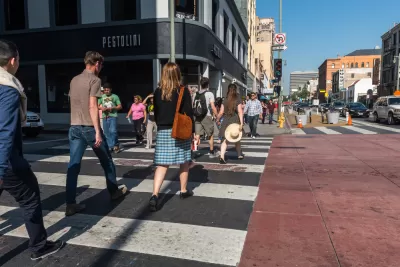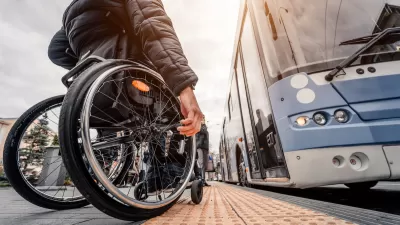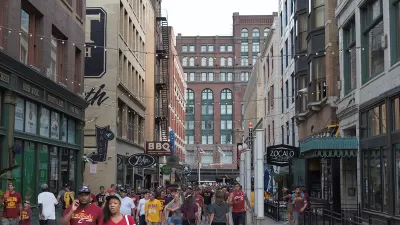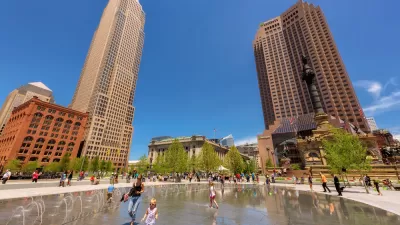Advocates argue that even famously car-centric Los Angeles can become a place where residents can easily access their daily needs without getting behind the wheel.

A coalition of planners, architects, and advocates think Los Angeles—“the ultimate car city”—can become a 15-minute city. That is, with better planning, most residents could reach their daily needs within a 15-minute walking, biking, or public transit trip, reports Erin Stone in LAist.
According to Jenny Hontz of the Livable Communities Initiative, “cars are a culprit when it comes to high rents: cities require developers to build parking spots with housing. In L.A., each spot can cost more than $50,000, upping rent prices.” Consequently, “Higher costs push Angelenos out of the city and into longer commutes, adding to planet-heating emissions. According to 2019 census data, 13% of Angelenos who commuted to the Westside for work drove more than 50 miles to get there.”
The coalition argues that “building smaller housing developments without parking, close to jobs and public transit, coupled with redesigning streets to be more walkable and bikeable, would lower rents and pollution.”
As the article notes, “Implementing the plan doesn't come without obstacles: among other things, it will require rezoning certain areas, dealing with legal challenges and red tape, and dropping the requirement to build parking, in addition to political and industry buy-in.” But with Los Angeles including it in the city’s housing element, it could have legs. Culver City, a small incorporated city on L.A.’s west side, “is on its way to implementing many of the ideas and possibly also working it into their general plan.” Meanwhile, a proposed state bill could eliminate parking requirements for small developments.
FULL STORY: The '15-Minute City': A Strategy To Reduce The Traffic, Pollution And High Housing Costs In LA

Maui's Vacation Rental Debate Turns Ugly
Verbal attacks, misinformation campaigns and fistfights plague a high-stakes debate to convert thousands of vacation rentals into long-term housing.

Planetizen Federal Action Tracker
A weekly monitor of how Trump’s orders and actions are impacting planners and planning in America.

Chicago’s Ghost Rails
Just beneath the surface of the modern city lie the remnants of its expansive early 20th-century streetcar system.

Bend, Oregon Zoning Reforms Prioritize Small-Scale Housing
The city altered its zoning code to allow multi-family housing and eliminated parking mandates citywide.

Amtrak Cutting Jobs, Funding to High-Speed Rail
The agency plans to cut 10 percent of its workforce and has confirmed it will not fund new high-speed rail projects.

LA Denies Basic Services to Unhoused Residents
The city has repeatedly failed to respond to requests for trash pickup at encampment sites, and eliminated a program that provided mobile showers and toilets.
Urban Design for Planners 1: Software Tools
This six-course series explores essential urban design concepts using open source software and equips planners with the tools they need to participate fully in the urban design process.
Planning for Universal Design
Learn the tools for implementing Universal Design in planning regulations.
planning NEXT
Appalachian Highlands Housing Partners
Mpact (founded as Rail~Volution)
City of Camden Redevelopment Agency
City of Astoria
City of Portland
City of Laramie





























